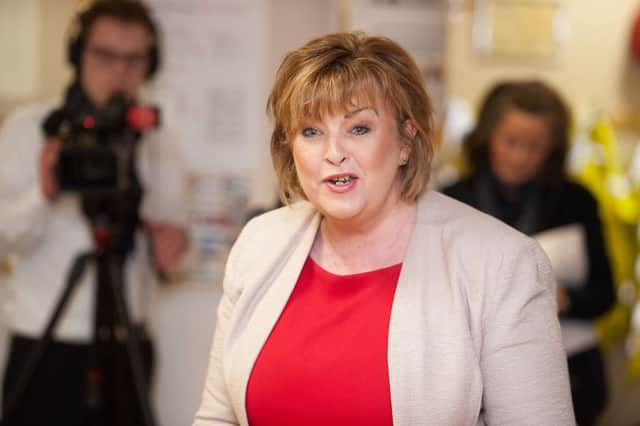Brian Ferguson: No real rumblings of discontent over Hyslop


Anyone hoping that Nicola Sturgeon’s Cabinet reshuffle would have heralded a new era for the Scottish arts landscape will have been left disappointed last week. In the end, it was no great surprise that Fiona Hyslop remained in her post as culture secretary. In fact, there was a palpable sense of relief across the sector that a politician who appears to command respect and is genuinely immersed in her brief would not be replaced.
It must say something for her track record that there were no real rumblings of discontent about her continuing in the role, which she has largely made her own in the six-and-a-half years since her appointment, when she was moved from the post of education secretary.
Advertisement
Hide AdAdvertisement
Hide AdThat is not to say it has all been plain sailing for Hyslop over the last few years – or that there are no choppy waters lying ahead. She has survived a number of bruising exchanges with film industry representatives, a full-blown crisis which engulfed the national arts quango Creative Scotland just two years after its creation by the Scottish Government, and the fall-out from an initial round of funding cuts last year. A probable repeat of the latter is undoubtedly the biggest cloud on the horizon for Hyslop, particularly as many organisations reliant on long-term funding from Creative Scotland have been protected from the impact of those cuts.
With another round of funding opening in the autumn, growing demand for backing for cultural projects around the country and local authority cuts beginning to bite, a tough couple of years lie ahead for the vast majority of publicly-funded arts venue, events and organisations. Companies including the National Theatre of Scotland have already spoken out strongly over the impact of the first wave of cuts and an inability to make long-term plans due to the lack of financial security.
Hyslop will be well aware she will have her work cut out to not only protect the culture budget from any more cuts over the next few years, but also to persuade the arts sector to take a share of the wider pain from the public spending squeeze.
There was little sign of a game-changer for the arts sector in the SNP manifesto. Hyslop had let her big idea for the next few years out of the bag in March when she declared that every young person in the country should be able to enjoy access to the arts. In a keynote speech in the Easterhouse estate in Glasgow, Hyslop said protecting and maintaining funding for arts and culture was crucial to improve the “life chances” of people in every community. This policy will emerge in a new “cultural experience fund” ensuring every primary school pupil is able to visit theatres, museums and art galleries.
It will not have escaped the notice of many of those venues that Hyslop has had the tourism industry added to her portfolio. And that means she is almost certainly going to have to tackle the thorny issue of whether a “tourist tax” is introduced in Scotland. The industry had previously been given cast-iron guarantees that this would not happen on the watch of Fergus Ewing, the previous holder of the tourism brief.
Hyslop’s headache is that some form of levy on visitors is seen by many in the cultural sector as the best bet for curbing the impact of funding cuts – especially in Edinburgh, where hotel prices are dramatically hiked during major events such as the annual festivals. With some of her own party colleagues agitating for such a tax despite industry hostility, she is going to need all her powers of persuasion and diplomacy to break the long-standing impasse.